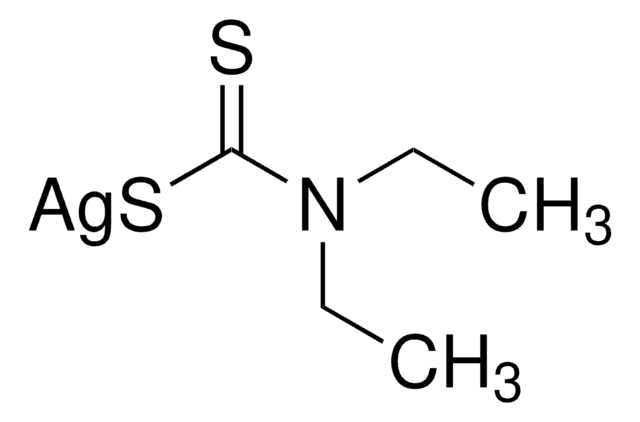183687
Reinecke salt
ACS reagent, ≥93.0%
Synonym(s):
Ammonium reineckate, Ammonium tetrarhodanatodiamminechromate(III), Ammonium tetrathiocyanatodiamminechromate(III), Ammonium tetrathiocyanodiammonochromate
About This Item
Recommended Products
grade
ACS reagent
Quality Level
Assay
≥93.0%
form
powder
reaction suitability
reagent type: catalyst
core: chromium
impurities
≤0.05% insol. dil. HCl
mp
268-272 °C (dec.) (lit.)
storage temp.
2-8°C
SMILES string
N.N.[NH4+].N#CS[Cr-](SC#N)(SC#N)SC#N
InChI
1S/4CHNS.Cr.3H3N/c4*2-1-3;;;;/h4*3H;;3*1H3/q;;;;+3;;;/p-3
InChI key
ZGLIQORZYPZFPW-UHFFFAOYSA-K
Looking for similar products? Visit Product Comparison Guide
Related Categories
General description
Application
Signal Word
Warning
Hazard Statements
Precautionary Statements
Hazard Classifications
Acute Tox. 4 Dermal - Acute Tox. 4 Inhalation - Acute Tox. 4 Oral
Storage Class Code
11 - Combustible Solids
WGK
WGK 3
Flash Point(F)
Not applicable
Flash Point(C)
Not applicable
Choose from one of the most recent versions:
Already Own This Product?
Find documentation for the products that you have recently purchased in the Document Library.
Our team of scientists has experience in all areas of research including Life Science, Material Science, Chemical Synthesis, Chromatography, Analytical and many others.
Contact Technical Service








